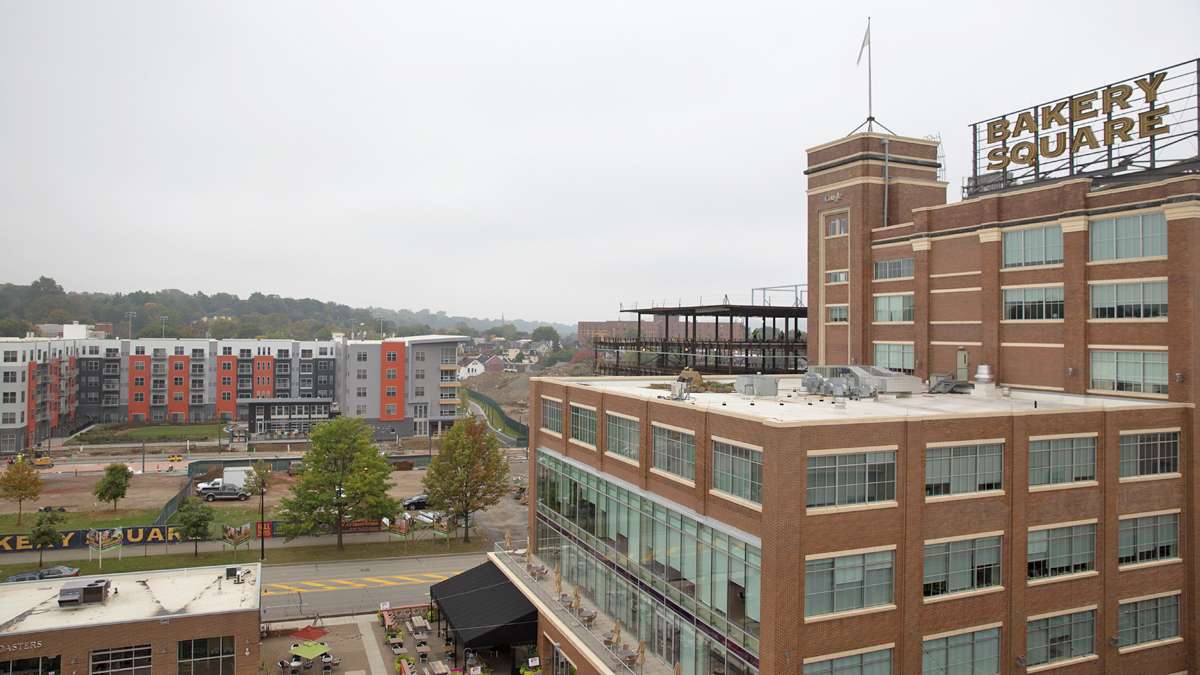At policy summit on housing, human capital, and inequality, many questions but also some solutions

Google offices, luxury apartments, and upscale box stores now make up Bakery Square in the East Liberty neighborhood of Pittsburgh. Nabisco once operated there. (Lindsay Lazarski/WHYY)
Pittsburgh has made a comeback as a city, but hasn’t overcome inequality and access to opportunity .
Pittsburgh Mayor Bill Peduto was the first to temper his city’s comeback story at the opening of this week’s policy summit there on housing, human capital and inequality.
Many panels focused on Pittsburgh’s resurgent economy, rapidly changing neighborhoods and growing stash of accolades and superlatives. Despite all that, Peduto said, there’s a lot of disparity in the city and the ladders of opportunity are not present in every zip code. We still have a heck of a lot of work to do, he said.
That tension carried through both days of the meeting, which addressed development and inequality in Pittsburgh and other cities and was hosted by the Federal Reserve Banks of Cleveland, Philadelphia, and Richmond.
Many cities need to level access to broadband, said Next Century Cities executive director Deb Socia during one session on its importance to employment, education attainment, and earning power. At another talk on Pittsburgh’s East Liberty neighborhood’s dramatic redevelopment, people handed out fliers titled “Black Homes Matter”, detailing displacement and the ills of gentrification in East Liberty. Affordability has been an important selling point for the city, but rents are going up: Pittsburgh has lost 70 percent of apartments that rent for below $700, according to Lena Andrews, with ACTION-Housing, Inc.
Ultimately, the point of the meeting was for participants to mine solutions from each other. Advice ranged from think big to think really, really small.
Kendall Pelling, Director of Land Recycling with East Liberty Development, Inc., told listeners to think on the scale of the problem; i.e., a whole neighborhood, not just a street.
But Cincinnati pediatrician Dr. Robert Kahn said fixing the problem for just one person can be an organic inroad to figuring out bigger solutions during his remarks tying public health issues, like asthma, to neighborhood health indicators, such as economic vitality.
We’ll be following up on what we learned at the conference. Meanwhile, below you can see a compilation of tweets from the summit.
[View the story “Policy summit on housing, human capital, and inequality” on Storify]
WHYY is your source for fact-based, in-depth journalism and information. As a nonprofit organization, we rely on financial support from readers like you. Please give today.


